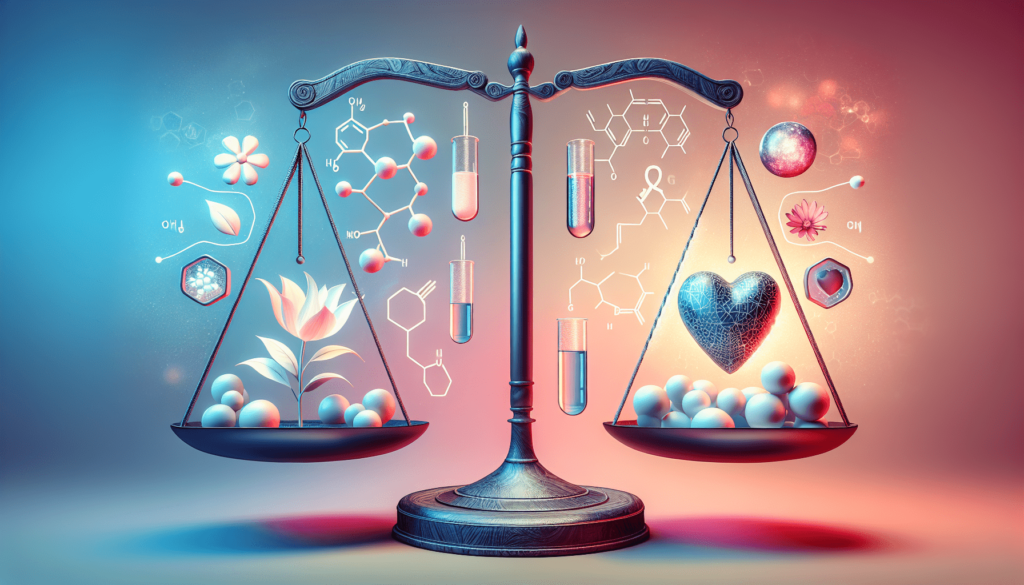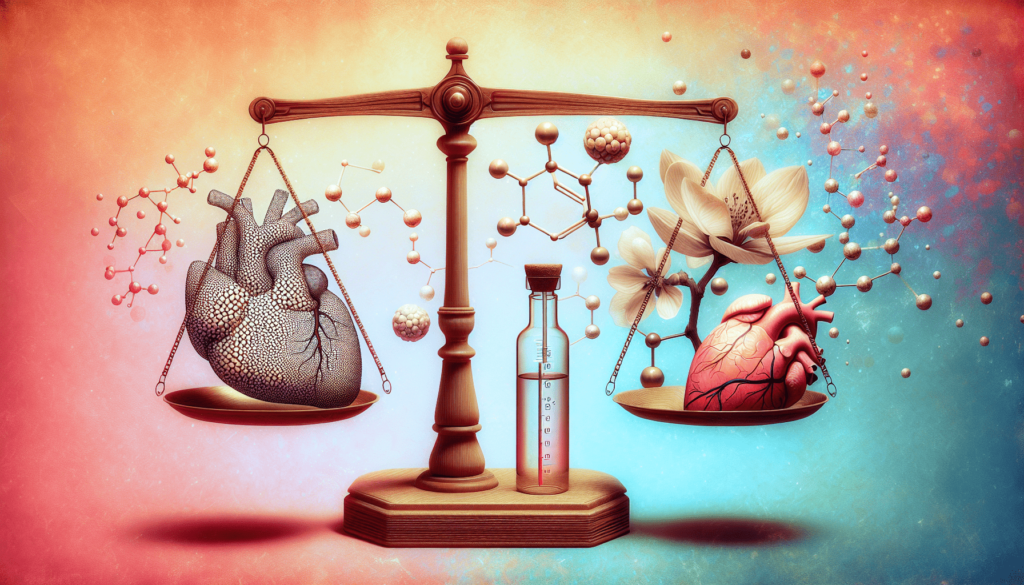Have you ever pondered the pivotal role hormones play in your body, beyond the usual whisperings of their influence on mood and menstrual cycles? More than just biological messengers, hormones orchestrate a symphony of complex processes that shape your daily life, health, and well-being. For females, this hormonal interplay is especially intricate and fascinating, impacting areas of life that range from growth and metabolism to stress management and emotional regulation.

Understanding Hormones: The Secret Language of the Body
Hormones are chemical substances produced by glands in the endocrine system, which is the body’s communication network. These hormones travel through the bloodstream to tissues and organs, directing processes such as growth, metabolism, and fertility. Picture hormones as tiny couriers delivering precise instructions to your cells to perform a myriad of functions efficiently.
The Endocrine System: A Brief Overview
Table of Contents
The endocrine system is central to hormone production and regulation. It comprises various glands, each crafting specific hormones to regulate different parts of the body’s functions:
- Pituitary Gland: Often dubbed the “master gland,” it influences other endocrine glands and releases growth hormone, prolactin, and others critical for development.
- Thyroid Gland: Produces hormones that regulate metabolism, energy, and overall growth.
- Adrenal Glands: Create cortisol and adrenaline, crucial for managing stress and activating your fight-or-flight response.
- Ovaries: In females, they secrete estrogen and progesterone, key players in reproductive health.
How Hormones Work
Consider hormones like a phone call or message sent to instruct cells. Cell receptors receive these messages and either execute the instruction or convey it through another pathway for further action. This communication influences a variety of bodily functions, ensuring everything from digestion to bone density works in sync.
Key Female Hormones and Their Functions
Now that you understand how hormones generally work, let’s delve deeper into the specific hormones that are particularly significant for females and their respective roles.
Estrogen: The Feminine Powerhouse
Estrogen, often seen as the quintessential female hormone, is pivotal from puberty through menopause. It’s responsible for:
- Development of Secondary Sexual Characteristics: Such as breast development and the widening of hips during puberty.
- Regulation of the Menstrual Cycle: By controlling the growth of the uterine lining.
- Bone Health: By maintaining bone density, thereby reducing the risk of osteoporosis.
- Cardiovascular Health: Assisting in maintaining healthy cholesterol levels.
Estrogen levels can fluctuate significantly during different life stages, profoundly influencing physical and emotional states.
Progesterone: Balancing and Supporting
Progesterone’s primary role is to regulate menstruation and support pregnancy. Its responsibilities include:
- Preparing the Uterus for Pregnancy: By thickening the uterine lining to facilitate implantation.
- Maintaining Pregnancy: By stabilizing the uterine lining and preventing contractions.
- Balancing Estrogen Effects: By preventing estrogen dominance, which can lead to symptoms like irritability and bloating.
This hormone acts as a balancing agent, working with estrogen to maintain hormonal equilibrium.
Testosterone: Beyond the Masculine
Though commonly associated with males, testosterone is essential for females too. It promotes:
- Muscle and Bone Strength: Enhancing overall body strength and endurance.
- Libido: Elevating sexual drive and sensation.
- Mood Regulation: Supporting emotional well-being and vitality.
Low testosterone levels can lead to fatigue, depression, and decreased sexual desire.
The Role of Insulin and Cortisol
Apart from reproductive hormones, others like insulin and cortisol play crucial roles. Insulin regulates blood sugar levels, preventing conditions like diabetes, while cortisol, often linked to stress, impacts metabolism and immune response.
Summary Table of Key Female Hormones
| Hormone | Produced By | Main Functions |
|---|---|---|
| Estrogen | Ovaries | Sexual development, bone health, cycle regulation |
| Progesterone | Ovaries | Menstrual cycle regulation, pregnancy support |
| Testosterone | Ovaries, Adrenal glands | Muscle and bone strength, libido |
| Insulin | Pancreas | Blood sugar regulation |
| Cortisol | Adrenal glands | Stress response, metabolism |
Hormonal Fluctuations and Female Health
Life stages like puberty, pregnancy, and menopause represent periods where hormonal shifts are incredibly significant. Let’s look into how these changes shape female health.
Puberty: A Transition to Adulthood
During puberty, hormones like estrogen and testosterone surge, marking the onset of reproductive maturity. These hormonal changes manifest as physical transformations—development of breasts, body hair, and the commencement of menstruation—and significant emotional changes.
Pregnancy: An Extraordinary Metamorphosis
Pregnancy ushers in profound hormonal upheaval. Progesterone and estrogen levels skyrocket to support fetal growth and prepare the body for birth. These hormonal tides bring with them experiences typical of pregnancy, such as morning sickness, emotional variability, and heightened sensory sensitivity.
Menopause: The End of Reproductive Years
Menopause signals the end of a woman’s reproductive capacity, generally occurring between ages 45 and 55. The decline in estrogen and progesterone during this period leads to symptoms such as hot flashes, mood swings, and sleep disturbances. While these changes can be challenging, they also herald a new phase of life and potential for growth.
Managing Hormonal Health
Being attuned to your body’s hormonal signals is vital for maintaining health and well-being. Here are ways you can support your hormonal balance:
- Balanced Diet: Incorporating foods rich in omega-3 fatty acids, fiber, and antioxidants can support hormone health.
- Regular Exercise: Physical activity helps regulate insulin levels and reduce stress, influencing overall hormone balance.
- Stress Management: Practices such as meditation and yoga can assist in maintaining cortisol levels.
- Adequate Sleep: Sleep is crucial for hormone regulation, particularly those controlling stress and appetite.
The Psychological Dimension of Hormones
Beyond the physical effects, hormones significantly impact emotional and psychological health. Their influence over the brain’s chemistry can affect mood, cognition, and mental health.
Mood and Emotional Well-being
Many women experience premenstrual syndrome (PMS), marked by mood swings and irritability due to hormonal shifts. Similarly, during menopause, mood changes can arise as estrogen and progesterone levels drop. Awareness and supportive strategies can help manage these changes.
Cognitive Function and Mental Sharpness
Estrogen is known to influence cognitive processes, including memory and learning. During menopause, some women report changes in memory and concentration. Adopting lifestyle habits that nurture brain health, such as mental exercises and social engagement, can be beneficial.

Hormones and Their Broader Influence
The role of hormones isn’t confined to reproductive health; they significantly influence several other areas critical for holistic wellness.
Bone Density and Strength
Estrogen plays a vital role in maintaining bone density. The drop in estrogen during menopause can increase susceptibility to osteoporosis, making it essential to monitor bone health actively and consider supplements or medications as needed.
Cardiovascular Health
Heart health is intricately linked to hormone levels. Estrogen is beneficial in maintaining healthy blood vessels and cholesterol levels. Its decline during menopause may increase the risk of cardiovascular issues, underscoring the importance of heart-healthy habits.
Skin and Hair Health
The state of your skin and hair can offer insights into your hormonal health. Hormonal imbalances might manifest as acne, hair loss, or other dermatological issues. A careful examination of your diet, stress levels, and skincare routine can help address these concerns.
Conclusion: Embracing Hormonal Health
Hormones are far more than invisible forces silently dictating your body’s inner workings. They are integral storytellers of female life stages and health. By understanding their functions and impacts, you can make informed decisions that support a balanced and fulfilling life. Listening to your body, seeking medical guidance when necessary, and adopting a lifestyle that nurtures hormonal health can empower you to navigate life’s transitions with grace and vitality.




